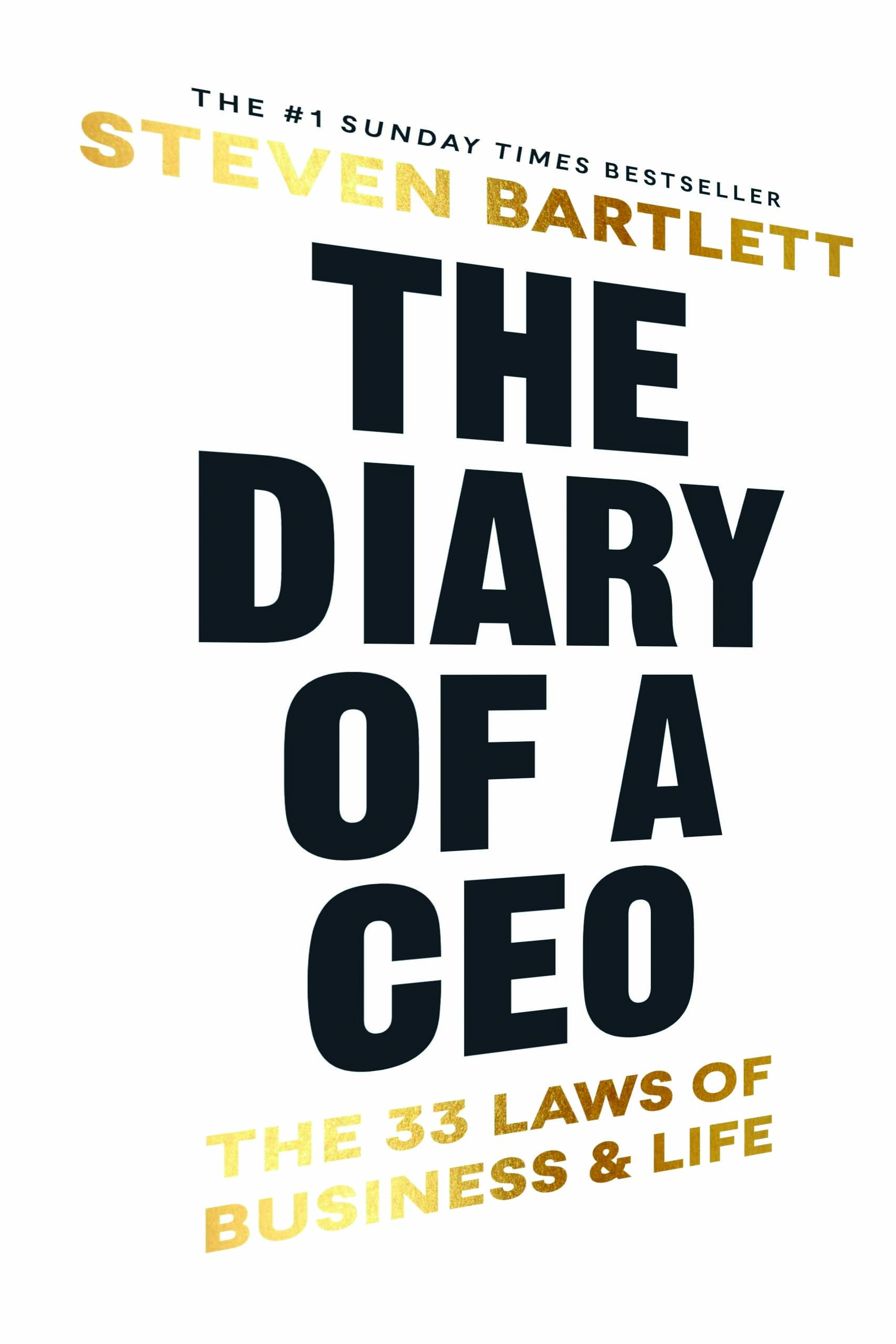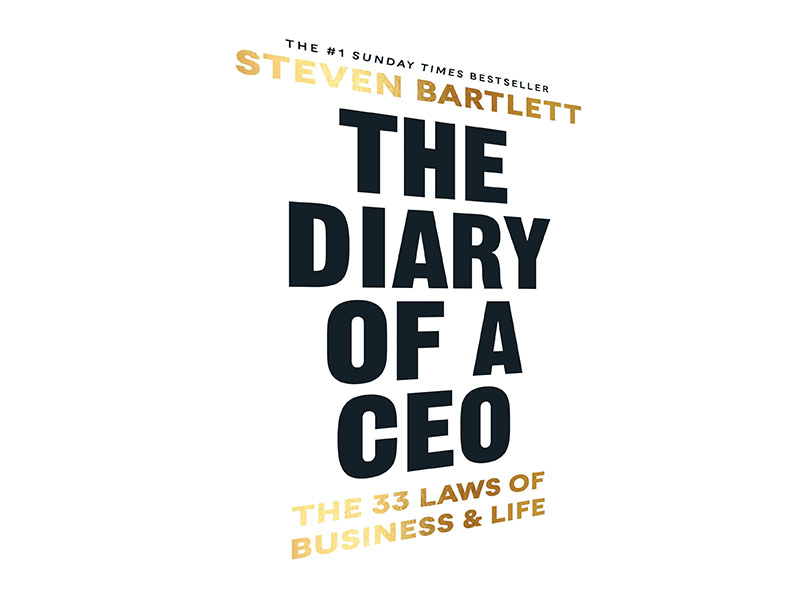
Steven Bartlett
Penguin random house
Rs.999 Pages 355
Globally reputed entrepreneur, author, angel investor and media maven, Bartlett shares his personal experiences, lessons derived from business and his 33 ‘laws’ of success
A college drop-out, Botswana-born UK-based Steven Bartlett (33) has established a formidable global reputation as entrepreneur, author, angel investor and media maven. His podcast titled The Diary of a CEO, streamed across Apple, Spotify and YouTube, has attracted over 1 billion streams/listeners and 50 million in 2024. On YouTube, its 671 episodes (until May 1, 2025) have been tuned in by 766 million viewers.
In 2023, the best of these motivational podcasts embellished with anecdotes from his roller-coaster life were published under the title The Diary of a CEO: The 33 Laws of Business & Life. In this book, he shares his personal experiences, lessons from business, and insightful reflections about 33 Laws “that could stand the test of time, transfer to any industry and be used by anyone who is trying to build something great or become someone great”.
These laws are grouped under “four pillar of greatness” — the self; the story; the philosophy, and the team.
Under Pillar I, Bartlett advises aspirational leaders to prepare for greatness by evaluating the self — your knowledge, skills, network, resources and reputation. These attributes could be grouped into “five buckets” and filled “to the brim” as in the history of Tesla founder and billionaire Elon Musk. To develop the self, Bartlett prescribes eight other laws — master a skill, teach it; don’t disagree; ask, don’t tell. The others are confusingly titled but become clear after they are explained with illuminating examples and anecdotes.
Under Pillar II, the author advises aspiring leaders to get their story right. “Make your marketing or brand message travel ten times further and reach ten times more people, with a hundredth of the budget”. The eight ‘laws’ prescribed under this pillar include starting with a big splash (“useless absurdities are better than useful practicalities”); learning to grab attention; piss people off (“if people hate you, you are saying the right thing”); fire psychological moonshots; don’t fear creating friction, among others. Intriguingly titled, laws under Pillar II are richly illustrated with thought-provoking examples, even if seemingly over the top.
Pillar III titled Philosophy, offers salutary advice to success chasers to understand and develop a personal philosophical core. “Your philosophy is the set of beliefs, values or principles that guide your behaviour — they are fundamental beliefs that underpin your actions,” he writes. Grouped under this pillar are nine more Bartlett laws — attention to detail elucidated with examples from Japanese Kaizen philosophy; learning to learn from failure; focus entirely on Plan-A, don’t draw up a Plan-B; make sure you are aware of your environment, “don’t be an ostrich”, among other useful advisories. Again all these laws are supported by engaging examples and anecdotes drawn from history and famous biographies.
In the laws grouped under Pillar IV, the author advises the ambitious to ensure they build teams “Assembling any group of people is not enough; for your group of people to become a great team, you need the right people, bound together by the right culture,” says this proven go-getter. And the prescription for building great teams is provided by six additional Bartlett laws. Among them: hire the best people, bind them together (“create a cult mentality”), ensure learning never ends, and several other nostrums. Examples and anecdotes are drawn from the lives and deeds of British entrepreneur extraordinaire Richard Branson, among others.
The Diary and its laws for business and life success are an engaging mix of self-help advice, business tips, vision and personal advancement philosophy. It is also helpful for education professionals aspiring for upward mobility in the fast-paced digital world.
The differentiator of this compendium of biographies and autobiography in a crowded library of self-help and career advancement manuals is that Bartlett doesn’t merely offer advice; he provides a unique lateral thinking prescription for students, teachers, and entrepreneurs, posing important philosophical conundrums such as: Why do we chase success that doesn’t make us happy? Is discipline more important than motivation? What happens when we ignore human sentiment in a world driven by data? Bartlett challenges readers — especially educators, and aspiring entrepreneurs — to rethink stress as privilege, prioritise discipline over fleeting motivation, and questions over rote answers.
The Diary is a strong, honest, and thoroughly contemporary guide that advises self-preparation for leadership in all walks of life. Inspiring, deep, very readable, easy to understand and implement, The Diary of a CEO isn’t just for CEOs — it’s for all who aspire to lead lives of clarity and purpose.
Priyanka Edupuganti
